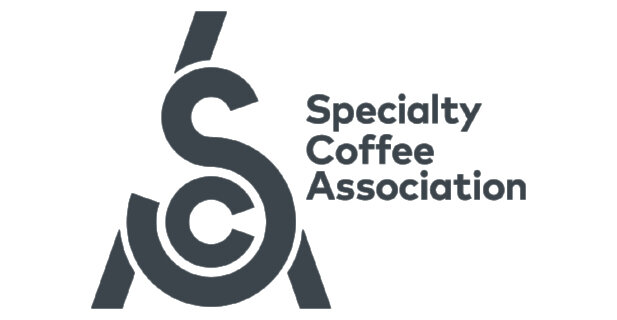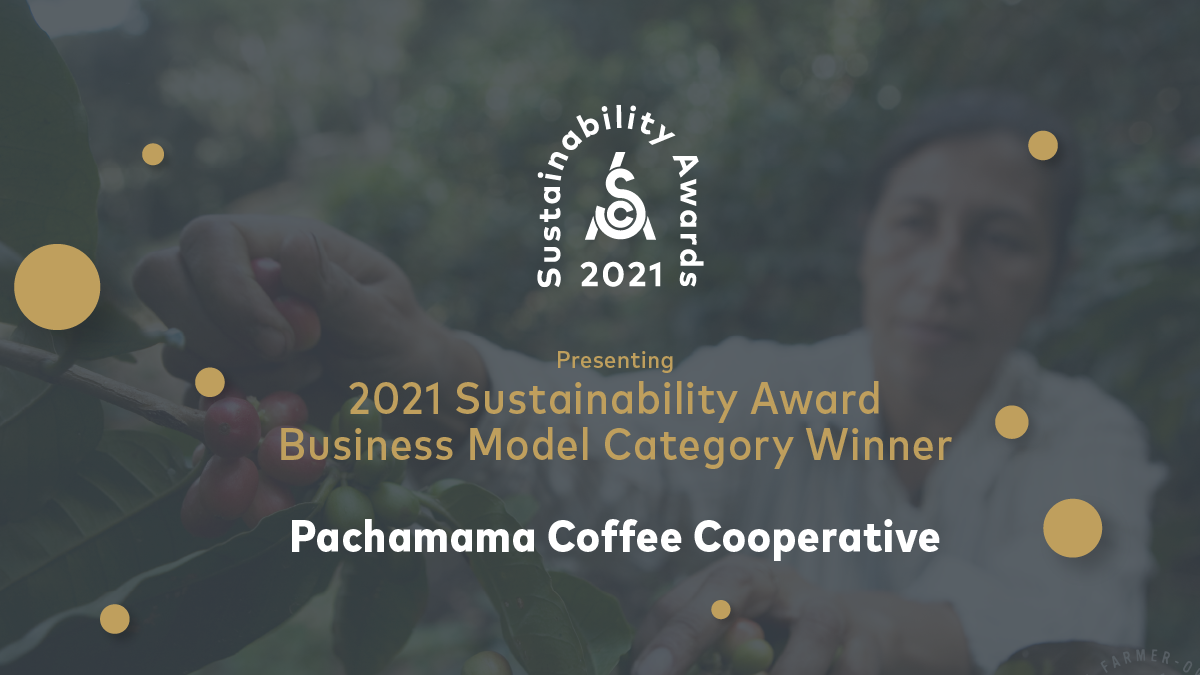Meet the Pachamama Coffee Cooperative: 2021 Sustainability Award Winner for Best Business Model
Founded in 2006, Pachamama Coffee is the first global cooperative in North America entirely owned by producers outside the country, uniting thousands of small farmers to roast their best coffee in California.
Since 2004, the Specialty Coffee Association (SCA) has been proud to recognize outstanding work in the field of sustainability with its annual Sustainability Awards, giving thanks to extraordinary individuals, businesses, and organizations that have created projects or business models shown to expand and promote sustainability within the coffee world. The Business Model award recognizes the role that for-profit companies play in the sustainability of the coffee sector. In addition to recognizing the individuals involved in creating the business, the award also aims to inspire others to build sustainable business models.
For 2021, the Sustainability Award Business Model Category winner is the Pachamama Coffee Cooperative.
“Pachamama’s model presents a new way of doing business in the coffee world,” says Thaleon Tremain, Pachamama’s CEO. “This award recognizes the power of ownership, governance, and equity that centers farmers as decision-makers. I am proud that our equity model empowers thousands of growers in Africa and Latin America to serve the consumer market directly, while telling their own story in new way.”
Let’s take a look at what makes Pachamama stand out, and hopefully inspire others to follow suit.
Pachamama was created by farmers, for farmers.
Pachamama is a roaster and retailer of specialty coffee collectively owned by thousands of smallholder farmers across Mexico, Peru, Guatemala, Nicaragua, and Ethiopia. Founded in 2006, Pachamama has been serving its producer members for nearly two decades. By working together, across borders and with US-based staff, Pachamama’s founding members were able to form the first global cooperative in North America owned by farmers outside of the country.
Many cooperatives stop at coffee production, but Pachamama’s business model is ‘farm-to-consumer”. The farmers involved not only grow the coffee, but roast and deliver their Certified Organic coffee in the United States via national wholesale distribution, three retail cafés, and a direct-to-consumer website.
As a business model, Pachamama is an example of a powerful community of people working together in pursuit of quality coffee across all three pillars of sustainability: environmental, economic, and social. Thousands of families of farmers make up the five member groups that come together to own Pachamama: COCLA of Peru, representing more than 8,500 families; PRODECOOP of Nicaragua, representing more than 2,300 families; Manos Campesinas of Guatemala, representing 1,100 families; La Union Regional of Mexico, representing 2,000 families; and Oromia Coffee Farmers Cooperative Union (OCFCU), representing 400,000 families. Pachamama’s board of directors is entirely governed by its five member groups, meaning that decisions on the annual budget, investments, strategy, and profit allocation are all decided by its members—shifting the balance of power and governance to small-scale farmers at the base of the economic pyramid.
“The producers who work to maintain our farms and deliver quality coffee—despite the twin challenges of climate change and economic inequity—are the true architects of this business model,” says Carlos Reynoso, Vice President of Pachamama Coffee and Manager of Manos Campesinas in Guatemala.
This unique governance model is a function of ownership: each member group owns 20% of Pachamama, and together the groups pooled their resources to create their own roastery in Sacramento, California, opening up access to consumer markets previously out of reach. Roasting in-house also reduced the members’ dependency on commodity markets and allowed farmers to capture more of coffee’s retail value. In its 2020 transparency report, Pachamama notes that it received US$15.34 per pound of roasted coffee sold on average—11 times 2020’s average C market price of US$1.11—split across their retail channels: US$31 per pound of coffee (brewed) in its three retail cafés, US$19 per pound (roasted) across online retail, and US$9 per pound (roasted) across wholesale. By creating a value-added, finished product, Pachamama captured more of the overall value, resulting in an average price of US$3.47 per pound paid to each farmer: a US$2.36 average FOB price (per pound) and an additional US$1.11 paid (per pound) in net profit.
Pachamama’s innovative business model has been contributing to long-term sustainability in the coffee industry for nearly 20 years.
Coffee exists thanks to the thousands of smallholder farmers around the world choosing to put their time and talents into growing it, but these same farmers often struggle to make a profit and earn a stable income. The Pachamama Coffee Cooperative was designed to strengthen the supply chain by making organic coffee more profitable for smallholders, helping them thrive as farmers. By investing in a solid foundation of economic stability at each link, Pachamama’s coffee supply chain can sustain itself. In this way, Pachamama’s business model delivers an equitable distribution of value for all who depend upon the future of specialty coffee.
“At Pachamama we are constantly working for equity in all aspects: equitable distribution, women's participation, fair prices for our producers, and fair salaries,” says Merling Preza, President and Co-Founder of Pachamama and General Manager of PRODECOOP in Nicaragua. “In order for a business model to be sustainable, there has to be benefits for everyone along the chain. We work constantly for a dignified life and a dignified wage.”
Inspired?
Keep up-to-date with Pachamama on their website and learn more about the role cooperatives play in the resilience of the specialty coffee sector with Merling Preza, President and Co-Founder of Pachamama and General Manager of PRODECOOP in Nicaragua, on the Re:co Podcast.
You can also watch Pachamama’s acceptance speech here.
About The Sustainability Awards
The selection process for the 2021 Sustainability Awards was led by a committee of staff and volunteers, and the winners were chosen by individual votes from the committee’s members. Special thanks to our 2021 Sustainability Awards Sponsor, Farmer Brothers. Learn more about the Sustainability Awards, including this year’s Project Category and Individual Category award winners, as well as previous winners here.





